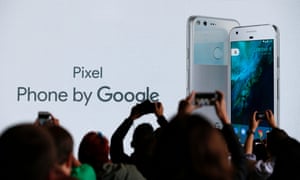The future of newspapers
Read this article from the Economist on the future of newspapers
On your blog, write a paragraph summarising the argument the article makes.
The article talks about how the internet has effected the newspapers and how the revenue of the newspapers is falling. And stated that the number of people that worked for the Newspaper Association of America had fell by 18% between 1990 and 2004. The article also talks about 'citizen journalists' and bloggers themselves and how they are all opinionated and is done 'unprofessionally', bloggers are just normal people that sit behind a screen on an armchair. Despite there being a great fall of newspapers in America, Europe, Australia and New Zealand, the sales are, yet, still rising in all the other countries but that is due to the lack of not having a great amount of NDM in those specific locations.
1) Do you agree with its view that it is ‘a cause for concern, but not for panic’?
I do agree as people are losing there jobs and that means that less people are being paid to go and report on news. Also there is not enough information that will be distributed to the public since there will eventually be a huge decline in the newspapers industry and in journalism. If there is a decline in newspapers, the information that is online could be invalid as there will be a lack of gate keepers. This is the same for journalism as there would be no one to be reporting the news to the different companies.
2) The article is 10 years old - an eternity in digital media terms. Have the writer's predictions come to pass? Use statistics from your Ofcom research to support or challenge the writer's argument
I do believe that the writer's predictions are true but also has been quite inaccurate. In France, they had recently launched a Snapchat feature called a discovery page. Also, in the article, it says that in specific countries, the newspapers sales are still rising. However, if you take a country like, Spain, print is starting to die there and they are becoming a country where using a mobile phone is more popular to look at the news.
3) The Economist suggests that high-quality journalism in the future will be backed by non-profit organisations rather than profit-seeking media corporations. Is there any evidence for this? How is the Guardian funded? What do major stories from the last year such as the Panama Papers suggest about how investigative journalism is conducted in the digital age?
The Guardian is owned by a British company that is called the Scott Trust Limited. Many organisations have respected that high quality journalists will be backed up by non profitable organisations. A key example of this could be a high quality journalist which adds all of their research and whatever they have found onto Twitter. Journalists wouldn't be making money with what they post as it would be an ordinary person stating this information.
__________________________________________________________
Build The Wall
Section 1 (To all of the bystanders reading this…)
Content is free online and for news industires to begin starting a paid subscription scheme may be dangerous.
Section 2 (Truth is, a halting movement toward...)
Newspapers that are available online for free without paid subscriptions are always available meaning that industries that start paid subscriptions may have quite repetitive content.
Section 3 (Beyond Mr. Sulzberger and Ms. Weymouth…)
Industries being able to start a paid subscription scheme would mean that they are able to generate a lot more revenue than what they have been making in the past years, it would mean that they will actually gain a reasonable, sustainable amount of profit.
Section 4 (For the industry, it is later than it should be…)
Even though its very late for the news industry, they are still able to gain a little more revenue and profit from starting this scheme.
Summarise David Simon’s overall argument in 250 words:
Davids argument is that news industries should start using a paid subscription scheme for users. This will enable them to read daily, weekly newspapers online exclusively to paid users. This helps ensure that news industries are still able to generate enough profit and revenue to stay alive as they're has been a major decline in print news in the recent years. This has caused journalists to lose a lot of jobs and also means that news industries have less, lower quality articles for users to read. David also goes on to say that the news industry is far far too late in introducing this scheme, it has been around 15 years since the internet was accessible to everyone and a lot of institutions and business manage to adapt to it well, but the news industry didn't. They offered they're content for free online but physical newspapers still had to be paid for. David also goes on to say that in order for this scheme to work very well across the news industry, every institution must be using it, this is so that users don't just rely on the institutions that are free, leading to a much higher dealing in those that are paid for. Also, if there's only a certain amount of institutions that have this scheme and others that don't it will lead to news being more repetitive and copied, meaning that people will be paying for content which is basically free.
This article talks about the positive and negative effects of the internet. Grayling suggests that governments may start to police the internet to find out information. The article does criticises the internet but does state that the four main functions are to inform, challenge, explore and debate and therefore benefits us as it enables us to challenge view points and not mindlessly read things.
Opinion
I believe what David is arguing for in his article, I believe that the news industries are bringing in this paid subscription way too late and that they should have done it in the very beginning, although now that the times by Rupert Murdoch has brought this delayed idea to life there is a slight chance that the news advantage can start gaining some revenue from new and digital media than before. If news institutions started this scheme back when the internet was viral they're wouldn't be any problems with the reduction of high quality journalism. I also believe that in order for the paid subscription scheme to work, every institution will need to be using it too in order for it to work in full effect simply because paid subscription services will have the same content as free sites, using a lot of repetition online.









